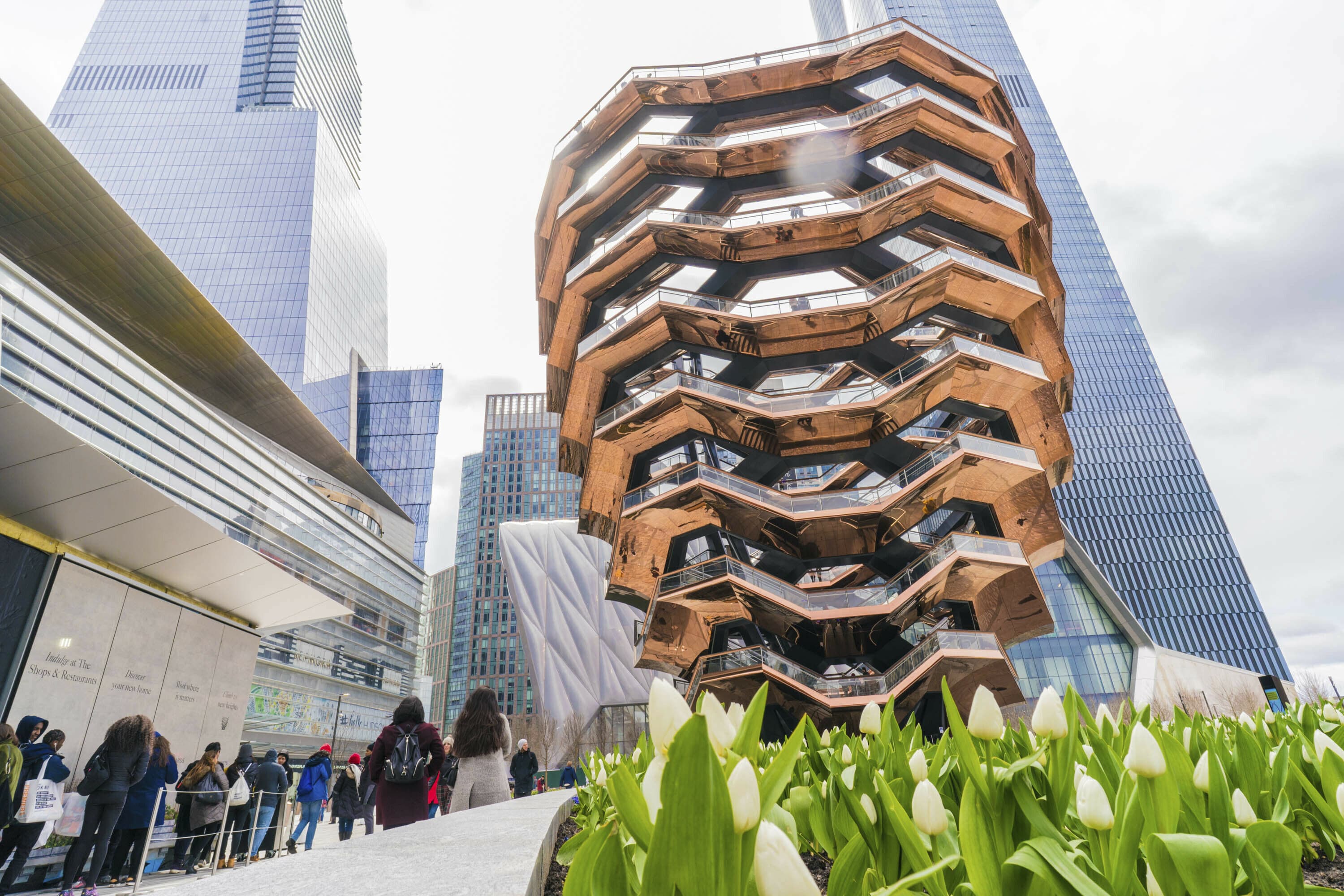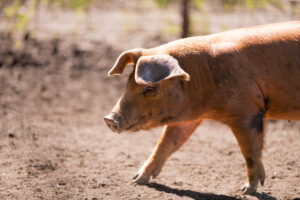The Real Russian Menace Is Just Hypercapitalism
A recent Washington Post feature lays bare the prejudices of our political press and its denial about how American society actually works. The Vessel, also known as the Hudson Yards Staircase, in New York City. (John Nacion / AP)
The Vessel, also known as the Hudson Yards Staircase, in New York City. (John Nacion / AP)
In the years leading up to the 2014 Winter Olympics, Russia spent something on the order of $50 billion to turn the sleepy Black Sea vacation town of Sochi into a glittering destination resort full of high-end amenities, luxury housing, international cuisine, palm trees and promenades. A giant ski resort bloomed across the slopes of the nearby western Caucasus mountains. Western journalists who arrived weeks before the games delighted in posting examples of incompetent (and, by implication, corrupt) building and construction, although many of these—such as a notorious photo of a bathroom stall with two toilets and a single toilet-paper dispenser—were later debunked.
Sochi and the 2014 Olympics became a byword for Russia’s notorious public graft, its estimated costs exceeding even those of the famously elaborate and expensive 2008 Summer Games in Beijing. And Sochi itself has become, in the American press, a go-to metonym for the autocratic governing regime of Vladimir Putin.
“President Trump has Mar-a-Lago and all the Trumpian gilded splendor behind the club gates,” reads a recent Washington Post report, whereas, “Sochi, host of the 2014 Winter Games, is all about Russian President Vladimir Putin—a place to host foreign envoys and indulge in some Putin-style diversions.
“Sochi, in many ways, offers a distilled image of the country [Putin] wants Russia to be,” the Post continues. “Multibillion-dollar construction projects by Putin’s friends and oligarchs have created some of Russia’s best—and most expensive—infrastructure.”
This is a common formulation in coverage of Russia, a sort of half-baked orientalism in which the omnipresent hand of a half-divine potentate directs the activities of an entire society. And to be fair, Russia is a highly centralized state with a uniquely powerful president. But in raising the specter of Donald Trump’s tacky, expensive Mar-a-Lago, the suggestion is that Trump—with his own anti-democratic impulses and at-least-incidental connections to both the Russian state and its powerful “oligarchs”—is in some sense steering the U.S. toward a version of this Russian caricature: corrupt, dictatorial, designed and directed toward the whims of its maximum leader.
We do not have oligarchs in America—our press reserves that title for devious foreigners—but we do have developers. I can’t read about Sochi, where “the Spanish gourmet food shop in the former Olympic Village serves fresh-cut jamón until midnight,” where, “[f]rom behind your rustic board of cheese and ham, you can now gaze across a concrete expanse toward the Olympic stadiums and building facades bathed in elaborate, shifting lights,” without thinking of New York City’s recently completed Hudson Yards—a $25 billion development on the West Side of Manhattan whose “cross-cultural alchemy” produces, in the words of Eater, a “blood-red product sporting the dense chew of a firm steak, the fire of hot wings, and the complex, nutty porkiness of Spanish Iberico.” All of this amid a towering array of overpriced glass towers and within walking distance of “The Vessel,” an “intriguing bronze-shawarma-Eiffel-Tower-thingy” at the center of a megablock.
Hudson Yards was developed by two opaque private firms, Oxford Properties, a Canadian company, and The Related Companies, LP, a firm founded by former tax attorney and New York real estate mogul Stephen Ross. It was built on public land and incentivized with $6 billion in tax breaks.
The development incorporates a massive arts complex named “The Shed,” which has been inexplicably hailed by critics as the one decent piece of architecture in the whole development, even though it looks like the sort of oversized ice cube you’ll find in a bar serving “craft cocktails.” It will be run by Alex Poots, a peripatetic arts impresario who previously ran the Manchester International Festival and Park Avenue Armory.
Well, Sochi has Hans-Joachim Frey, the former director of the Semperoper in Dresden, Germany, and per the Post, “the artistic director of the Sirius Foundation, which converted many of the facilities in the Olympic Park to the center for gifted kids from across Russia.” Culture-washing, shameless, commercial real-estate development is part of the universal language of capitalism.
This, I think, is the critical point. There is much to dislike about contemporary Russia, but it’s absurd to pretend that its hypercapitalist development, its overinvestment in a few glittering cities at the expense of a decaying and struggling hinterland, represent anything other than the typical pattern in most advanced countries today. It is perhaps where Russia most resembles the so-called West.
Over the last several years, as the baroque tale of election interference and Trump family connections to Russian money unspooled in elaborate and conspiratorial fashion, the American “resistance,” and much of mainstream American journalism, grew increasingly unhinged regarding all things Russia. Magazine graphic design shops bizarrely confused St. Basil’s Cathedral with the Kremlin, while Internet “resistance” types began popularizing Trump-Russia images featuring the hammer and sickle of the long-collapsed Soviet Union. Perhaps you’ve seen the graphic emblazoned on a T-shirt.
Either way, it’s a strange fantasy. Since the fall of the USSR and the America-led social catastrophe of economic shock therapy, Russia has emerged as one of the most unfettered capitalist economies in the world, a Wild West of unregulated markets with a yawning gap between the very, very rich and everybody else. Sochi is less Mar-a-Lago than it is Billionaire’s Row—or half of Brooklyn, or waterfront Miami. The end of history, it turns out, is the same luxury condominium complex overgrowing the whole world.
Your support is crucial…With an uncertain future and a new administration casting doubt on press freedoms, the danger is clear: The truth is at risk.
Now is the time to give. Your tax-deductible support allows us to dig deeper, delivering fearless investigative reporting and analysis that exposes what’s really happening — without compromise.
Stand with our courageous journalists. Donate today to protect a free press, uphold democracy and unearth untold stories.









You need to be a supporter to comment.
There are currently no responses to this article.
Be the first to respond.